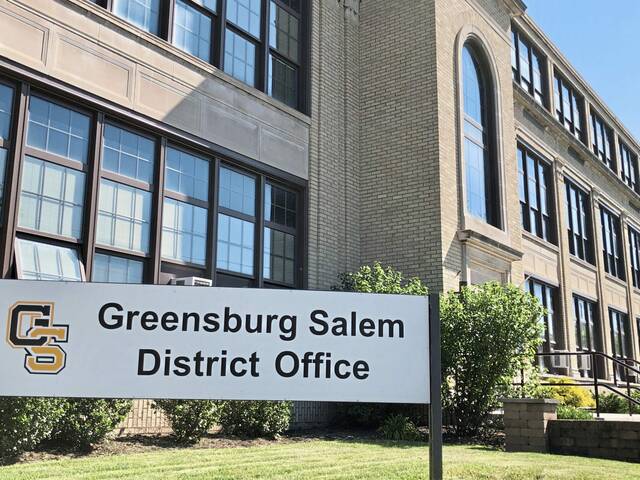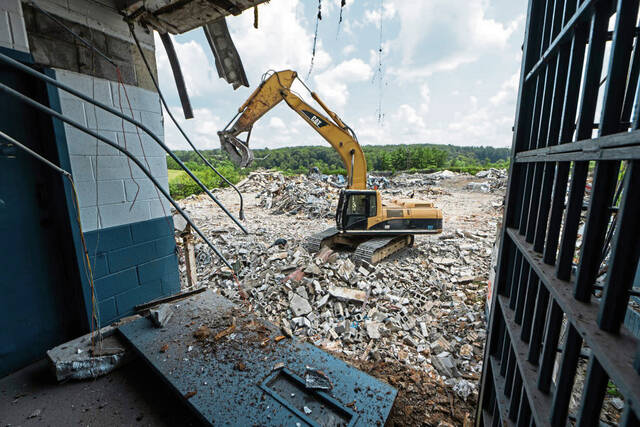Greensburg Salem School Board will decide Wednesday whether to place an upper limit on any potential real estate tax increase it may consider to help balance the 2023-24 district budget.
The district is required by state law to abide by a cap on any tax hike unless it drafts and approves a budget earlier than June, according to business manager Allison Willis.
For the coming year, the inflation- related tax-hike cap would be set at 4.76 mills. During its meeting this week, the board will consider a resolution agreeing not to exceed that limit.
“Historically, the district has always passed that resolution,” Willis said. “This does not mean that we’re raising taxes. It simply says that we’re going to live within that index.”
Greensburg Salem’s real estate tax has remained at 89.72 mills for the past several years. Each mill of tax generates about $221,000 in revenue for the district, according to Willis.
If the board passes the Act 1 resolution, it will follow a normal timeline for adopting a 2023-24 district budget — approving a preliminary budget by May 30 and a final version by June 30.
Willis said budget projections for the coming school year aren’t yet available.
Federal funding boost to end
The board learned that the district ended the 2020-21 school year with a fund balance of close to $7.5 million.
That figure was included in a presentation of preliminary results of a local audit of district finances for that fiscal year. The audit also found that Greensburg Salem’s revenues for that year exceeded what had been budgeted by about $5 million while expenditures exceeded the budget by about $3.4 million.
Those excessive figures were attributed largely to the district’s unanticipated receipt and spending of federal dollars for relief from the covid-19 pandemic through the Elementary and Secondary School Emergency Relief Fund (ESSER).
Greensburg Salem was approved for more than $11 million in ESSER funding, spread across three distributions. Items that have been supported with ESSER dollars include installing new HVAC controls at district schools, hiring substitute staffers and replenishing and upgrading technology for students and in classrooms.
District Superintendent Ken Bissell pointed out ESSER funds no longer will be available for spending after September 2024.
“There’s a lot that we’re looking at as far as how to transition out of that,” he said.








